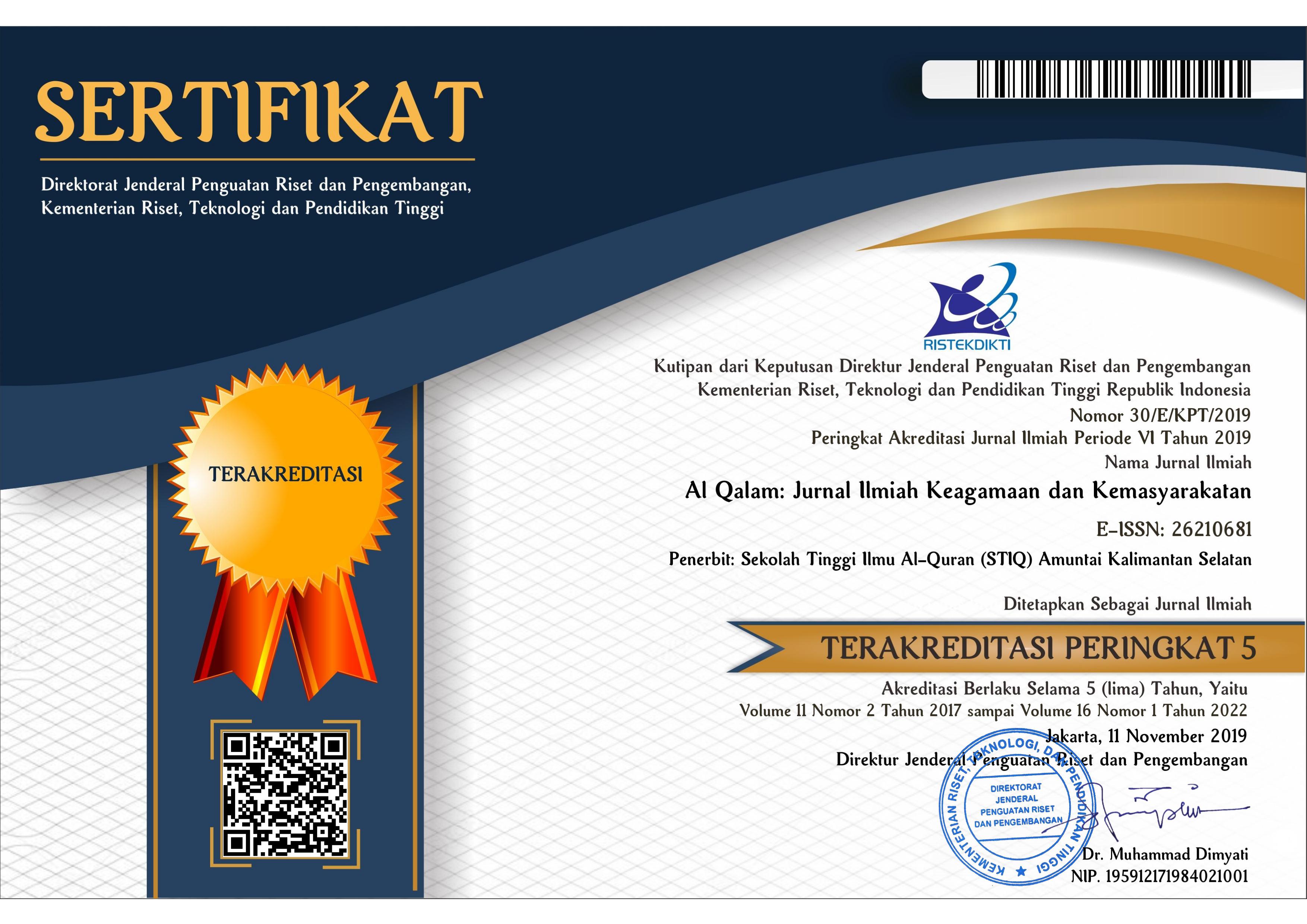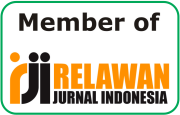Religiosity, Financial Vulnerability, Financial Behavior and Family Welfare in Families Receiving Direct Cash Assistance (BLT)
Abstract
The government has made several efforts to reduce poverty, one of which is the provision of Direct Cash Transfer (BLT), which is expected to increase purchasing power and have an impact on increasing family welfare. The purpose of this study was to analyse the effect of religiosity, financial vulnerability and financial behaviour on family welfare in families receiving Direct Cash Transfer (DCT). This study adopted a quantitative approach using a convenience sampling technique with a total of 130 BLT recipient families as respondents. The study was conducted in Purwakarta Regency. The results showed that religiosity was in the high category, financial vulnerability was in the medium category, financial behaviour of BLT recipient families was in the low category, and family welfare was in the medium category. The results showed that family welfare is directly influenced by financial behaviour and financial vulnerability. Meanwhile, religiosity affects family welfare through financial behaviour. The results of this study show the importance of good financial behaviour for BLT recipients to improve family welfare and not depend on government assistance.
Keywords
Full Text:
PDFReferences
Abou-Youssef, Mariam, Wael Kortam, Ehab Abou-Aish, and Noha El-Bassiouny. "Measuring Islamic-driven buyer behavioral implications: A proposed market-minded religiosity scale." Journal of American Science 7, no. 8 (2011): 728-741. http://www.americanscience.org/
Ahmad, Atika. "Dampak locus of control, sikap keuangan, pendapatan, dan religiusitas terhadap perilaku keuangan." Management and Accounting Expose 2, no. 2 (2019): 105-115. https://doi.org/10.36441/mae.v2i2.102.
Akib, Irwan, and Risfaisal Risfaisal. "Bantuan langsung tunai." Jurnal Equilibrium (2016).
Anderloni, Luisa, Emanuele Bacchiocchi, and Daniela Vandone. "Household financial vulnerability: An empirical analysis." Research in Economics 66, no. 3 (2012): 284-296. doi:10.1016/j.rie.2012.03.001
Baryła-Matejczuk, Monika, Viktorija Skvarciany, Andrzej Cwynar, Wiesław Poleszak, and Wiktor Cwynar. "Link between financial management behaviours and quality of relationship and overall life satisfaction among married and cohabiting couples: Insights from application of artificial neural networks." International Journal of Environmental Research and Public Health 17, no. 4 (2020): 1190. doi:10.3390/ijerph17041190.
Basri, Basri, and Suhendar Suhendar. "Religiusitas dan Kesejahteraan pada Masyarakat Miskin (di Desa Lubuk Gaung Kecamatan Siak Kecil Kabupaten Bengkalis)." PhD diss., Riau University, 2014.
[BPS] Badan Pusat Statistika.2022.Tingkat kemiskinan di Indonesia.[diakses 2022 Okt 21]. http://www.bps.go.id
Enrico, Aldo, Ritchie Aron, and Weriyen Oktavia. "The factors that influenced consumptive behavior: a survey of university students in Jakarta." International Journal of Scientific and Research Publications 4, no. 1 (2014): 1-6. https://doi.org/10.2139/ssrn.2357953.
Fahrudin, Adi. Pengantar kesejahteraan sosial. PT Refika Aditama, 2012.
Febrian, Ranggi. "Pembangunan Desa-Kota di Indonesia dari Perspektif Pengembangan Wilayah dan Migrasi." Nakhoda: Jurnal Ilmu Pemerintahan 15, no. 26 (2016): 124-135. doi:10.35967/jipn.v15i2.3854.
Jacobus, Elvira Handayani, Paulus Kindangen, and Een N. Walewangko. "Analisis faktor-faktor yang mempengaruhi kemiskinan rumah tangga di Sulawesi Utara." Jurnal Pembanguan Ekonomi dan Keuangan Daerah 19, no. 3 (2018). https://ejournal.unsrat.ac.id/index.php/jpekd/article/download/32744/.
Jaenudin, Ujam, and Tahrir Tahrir. "Studi religiusitas, budaya Sunda, dan perilaku moral pada masyarakat Kabupaten Bandung." Jurnal Psikologi Islam dan Budaya 2, no. 1 (2019): 1-8. doi:10.15575/jpib.v2i1.3445
Koto, Murviana. "Financial fragility di masa pandemi covid-19." In Prosiding Seminar Nasional Kewirausahaan, vol. 2, no. 1, pp. 954-961. 2021. https://doi.org/10.30596/snk.v2i1.8412
Lajuni, Nelson, Imbarine Bujang, Abd Aziz Karia, and Yusman Yacob. "Religiosity, financial knowledge, and financial behavior influence on personal financial distress among millennial generation." Jurnal Manajemen dan Kewirausahaan 20, no. 2 (2018): 92-98. doi:10.9744/jmk.20.2.92-98.
Lee, May Poh, and Mohamad Fazli Sabri. "Review of financial vulnerability studies." Archives of Business Research 5, no. 2 (2017). doi:10.14738/abr.52.2784.
León, Anja Köbrich, and Christian Pfeifer. "Religious activity, risk-taking preferences and financial behaviour: Empirical evidence from German survey data." Journal of Behavioral and Experimental Economics 69 (2017): 99-107. https://doi.org/10.1016/j.socec.2017.05.005
Marzuki, S. (2015). Peran Lembaga Pemberdayaan Masyarakat dalam Meningkatkan Pendapatan Ibu Rumah Tangga di Kecamatan Cina Kabupaten Bone Sulawesi Selatan. Jurnal Studi Gender Dan Islam, 7(1), 59–78.
Magli, Amirah Shazana, Mohamad Fazli Sabri, Husniyah Abdul Rahim, Muhammad Amim Othman, Nurul Shahnaz Ahmad Mahzan, Nurulhuda Mohd Satar, and H. Janor. "Mediation effect of financial behaviour on financial vulnerability among B40 households." Malays. J. Consum. Fam. Econ 21 (2021): 191-217.
Puspitawati, Herien. Gender dan keluarga: konsep dan realita di Indonesia. IPB Press (Kampus IPB Taman Kencana Bogor, 2019
Raharjo, Iman Teguh, Herien Puspitawati, and Diah Krisnatuti. "Tekanan ekonomi, manajemen keuangan, dan kesejahteraan pada keluarga muda." Jurnal Ilmu Keluarga dan Konsumen 8, no. 1 (2015): 38-48. https://doi.org/10.24156/jikk.2015.8.1.38
Rosni, Rosni. "Analisis tingkat kesejahteraan masyarakat nelayan di desa dahari selebar kecamatan talawi kabupaten batubara." Jurnal Geografi 9, no. 1 (2017): 53. https://doi.org/10.24156/jikk.2015.8.1.38.
Sabri, Mohamad Fazli. "Financial literacy, behavior and vulnerability among Malaysian households: Does gender matter?." International Journal of Economics & Management 15, no. 2 (2021).
Sabri, Mohamad Fazli, Rozita Wahab, Nurul Shahnaz Mahdzan, Amirah Shazana Magli, and Husniyah Abd Rahim. "Mediating effect of financial behaviour on the relationship between perceived financial wellbeing and its factors among low-income young adults in Malaysia." Frontiers in psychology 13 (2022): 858630.
Simona-Moussa, Jehane. "The subjective well-being of those vulnerable to poverty in Switzerland." Journal of Happiness Studies 21, no. 5 (2020): 1561-1580. https://doi.org/10.1007/s10902-019-00143-5.
Singh, Kamakhya Nr, and Shruti Malik. "An empirical analysis on household financial vulnerability in India: exploring the role of financial knowledge, impulsivity and money management skills." Managerial Finance 48, no. 9/10 (2022): 1391-1412. https://doi.org/10.1108/MF-08-2021-0386.
Suitor, J. Jill, Megan Gilligan, Karl Pillemer, Karen L. Fingerman, Kyungmin Kim, Merril Silverstein, and Vern L. Bengtson. "Applying within-family differences approaches to enhance understanding of the complexity of intergenerational relations." The Journals of Gerontology: Series B 73, no. 1 (2018): 40-53. doi:10.1093/geronb/gbx037.
Sunarti, Euis. Inventori pengukuran keluarga. PT Penerbit IPB Press, 2021.
Wibowo, Febrian Wahyu, and Rusny Istiqomah Sujono. "Pengaruh religiusitas terhadap wirausaha muslim muda (studi kasus pondok pesantren di yogyakarta)." Al-Infaq: Jurnal Ekonomi Islam 12, no. 2 (2021): 138-157. doi:10.32507/ajei.v12i2.867.
DOI: http://dx.doi.org/10.35931/aq.v19i6.5685
Refbacks
- There are currently no refbacks.
Copyright (c) 2025 Fitri Ayu Wahyuni, Istiqlaliyah Muflikhati, Irni Rahmayani Johan

This work is licensed under a Creative Commons Attribution 4.0 International License.
Al Qalam: Jurnal Ilmiah Keagamaan dan Kemasyarakatan
index by:
Publish by:
Sekolah Tinggi Ilmu Al-Qur'an Amuntai
Contact us:
Address: Jl. Rakha Pakapuran, Amuntai Utara
Kabupaten : Hulu Sungai Utara
Kode Pos : 71471
Provinsi : Kalimantan Selatan
Telephone : 085251613000
Email: hafizhihusinsungkar@gmail.com

This work is licensed under a Creative Commons Attribution 4.0 International License


